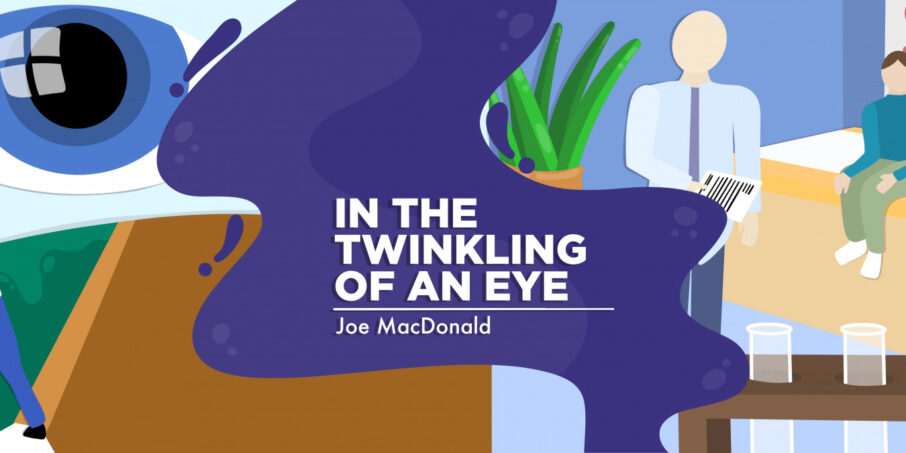
The Joy of Lobbying the Senate on Behalf of my Sons with Hemophilia
How I advocated for the bleeding disorders community on Capitol Hill.
by: Joe MacDonald
Last Thursday, I visited Washington, D.C., to join my fellow blood brothers and sisters in lobbying legislators regarding issues that directly affect the bleeding disorders community. I must admit that I was a little nervous. Several times, I wondered, “What in the world am I doing here? I’m only a pastor at a local church in New Mexico. How can my words make a difference in the lives of my sons and others with hemophilia.
My first visit was with Wasem Gawish, a pharmacist and healthcare policy fellow who works in the office of Sen. Martin Heinrich (New Mexico). As my associate and I sat in the office waiting to visit with Gawish, my mouth felt as if it had cotton balls in it. No matter how hard I tried, I couldn’t produce one drop of saliva. I thought to myself, “Come on, Joe. Get a grip. Remember, I’m an expert on this subject.”
I asked Gawish if he knew anything about hemophilia and other bleeding disorders; he said he was very familiar with them. I then started talking about one of the key issues we advocates wanted to discuss with our congresspeople: copay accumulator adjustment programs.
I explained that many drug manufacturers offer copay assistance to qualifying patients to help them afford treatment. In a perfect world, the amount provided through copay assistance would count toward a patient’s out-of-pocket expenses. Unfortunately, though, many health insurance companies refuse to provide that credit, so once the assistance money runs out, consumers are on the hook for the full amount of their deductible and out-of-pocket maximums.
The policy allows insurance companies to essentially get paid twice, as they’re receiving payments from both the drug manufacturer and the consumer.
A friend of mine explained that it’s like receiving a college scholarship, only to get a bill from the university indicating that, while the scholarship was applied, you must still pay the full tuition.
Gawish received my argument well. I told him that many people would go bankrupt if they had to choose between saving their children’s lives or paying debts, and that it was unfair to put hardworking citizens in that predicament. He agreed and took notes to speak with Sen. Heinrich about the situation.
Advertisement
Although my mouth remained as dry as a desert, I thanked him and told him I appreciated his time. My cohort and I left the room feeling that Gawish had heard our voices.
As soon as we cleared the door, I informed my friend that I needed a lot of water. She affirmed my approach to the senator, saying she couldn’t believe this visit was my first time lobbying at Washington Days. We then had lunch at the commissary, where many congressional staff eat.
The next senator on my list
Later that day, I visited the office of my other senator, Ben Ray Luján, where his legislative correspondent, Shannon Sweeney, greeted me. I talked with her about the same issues, and she fully supported our lobbying efforts and said she’d bring our concerns to the senator.
Sweeney then asked if my friend and I would like to go to the Senate chamber to watch the senators vote on a piece of legislation introduced by Sens. Luján and Josh Hawley (Missouri). My friend and I agreed and took a memorable ride on the train under the Senate building until we arrived at the Capitol.
By now, I couldn’t believe our good fortune. No one else from our group had received an invite from their respective congresspeople. Even though she’s from Nebraska, the friend who joined me said that she’d be glad to go with me to greet my state’s legislators anytime.
We sat silently, watching faces we’ve repeatedly seen on TV. I couldn’t believe my eyes. This turn of events proved incredible as I watched the Senate pass legislation that would compensate those exposed to radiation by the government.
Afterward, we from the bleeding disorders community sat together to process the day’s events and reflect on our lobbying efforts. I felt overwhelmed with emotions as I thought of my sons. I quietly said, “I did this for you, my boys. I want the world to do what’s right for all of us facing chronic illnesses. I want you to know that anyone can stand up and lobby our legislators. All we have to do is raise our voice.”
Source: Hemophilia News Today, March 2024
Note: Hemophilia News Today is strictly a news and information website about the disease. It does not provide medical advice, diagnosis, or treatment. This content is not intended to be a substitute for professional medical advice, diagnosis, or treatment. Always seek the advice of your physician or another qualified health provider with any questions you may have regarding a medical condition. Never disregard professional medical advice or delay in seeking it because of something you have read on this website. The opinions expressed in this column are not those of Hemophilia News Today or its parent company, BioNews, and are intended to spark discussion about issues pertaining to hemophilia.